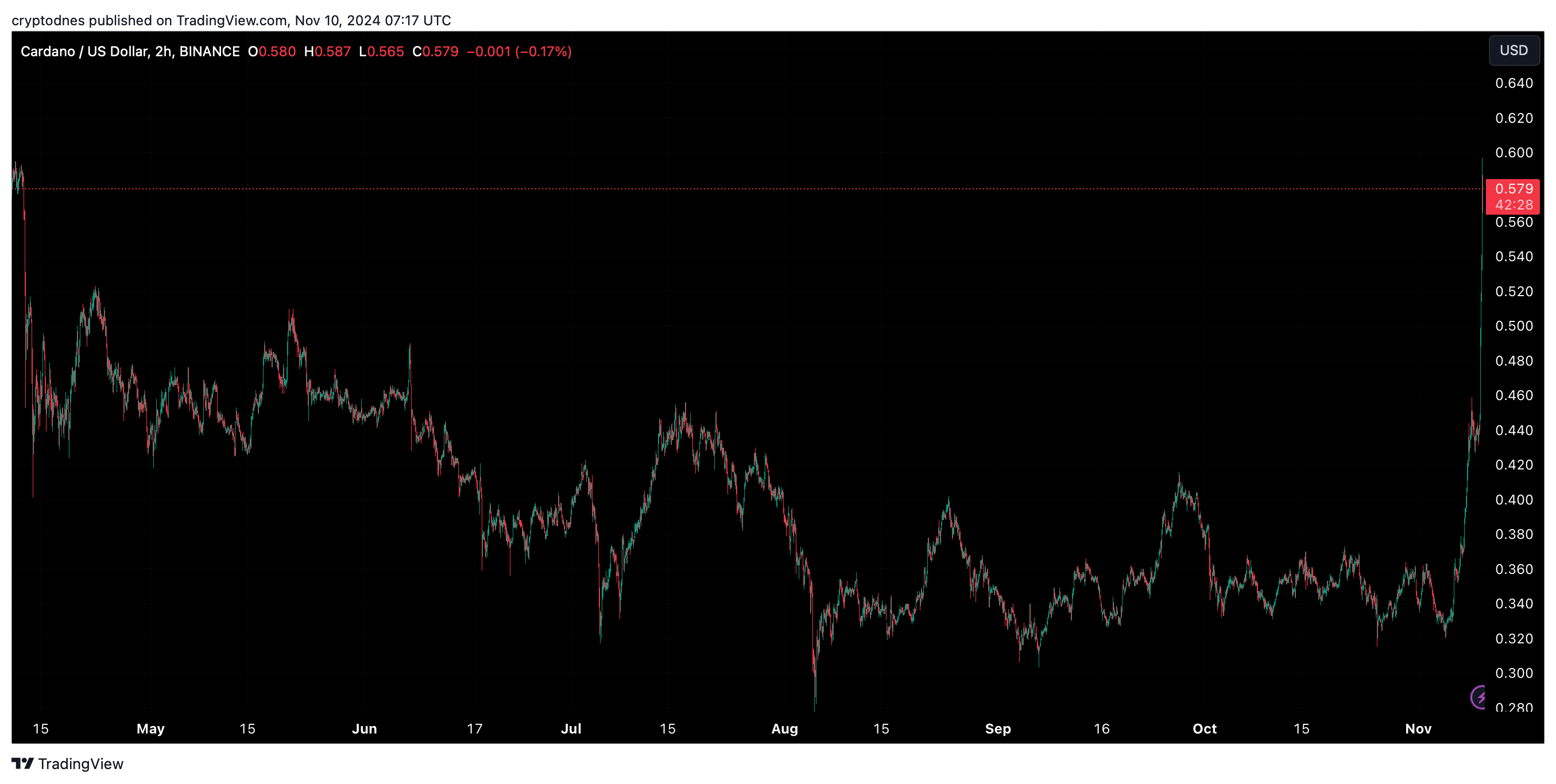Bitcoin Hits a New All-Time High, Surpassing $79,000
10.11.2024 9:28 1 min. read Kosta Gushterov
Bitcoin (BTC) crossed the $79,000 mark for the first time during this weekend’s rally, leading to $386 million in liquidated trades.
Although the cryptocurrency reached as high as $79,600 early in the morning, it was hovering around $78,900 at the time of writing.

This 4% increase extended Bitcoin’s 7-day growth to over 15%, driven by two major events: Donald Trump’s victory in the U.S. presidential election and a 25 basis point interest rate cut by the Federal Reserve—both seen as favorable for the crypto market.
Weekend rallies typically signal bullish sentiment, as lower institutional trading activity can increase volatility and make price movements more sensitive to smaller trades. This rally suggests that retail investors are taking the lead, indicating widespread interest beyond institutional participation.
Data shows relatively low profit-taking levels among BTC traders, suggesting the potential for continued upward movement, according to CoinDesk’s analysis. Over the weekend, crypto shorts faced a rare wave of liquidations, with losses totaling $386 million in the past 24 hours.

Such large-scale liquidations reflect high volatility and can sometimes indicate a market turning point, where overreactions may lead to price reversals. Major liquidations are often triggered when exchanges close leveraged positions that no longer meet margin requirements, highlighting market risks in volatile trading conditions.
-
1
Bitcoin: What to Expect After Hitting a New All-time High
10.07.2025 14:00 2 min. read -
2
Peter Brandt Issues Cautious Bitcoin Warning Despite Bullish Positioning
10.07.2025 20:00 2 min. read -
3
Vanguard Now Owns 8% of Michael Saylor’s Strategy, Despite Calling BTC ‘Worthless’
15.07.2025 17:09 2 min. read -
4
Standard Chartered Becomes First Global Bank to Launch Bitcoin and Ethereum Spot Trading
15.07.2025 11:00 1 min. read -
5
What’s The Real Reason Behind Bitcoin’s Surge? Analyst Company Explains
12.07.2025 12:00 2 min. read
Ethereum Spot ETFs Dwarf Bitcoin with $1.85B Inflows: Utility Season in Full Swing
Ethereum is rapidly emerging as the institutional favorite, with new ETF inflow data suggesting a seismic shift in investor focus away from Bitcoin.
Ethereum Flashes Golden Cross Against Bitcoin: Will History Repeat?
Ethereum (ETH) has just triggered a golden cross against Bitcoin (BTC)—a technical pattern that has historically preceded massive altcoin rallies.
Bitcoin Banana Chart Gains Traction as Peter Brandt Revisits Parabolic Trend
Veteran trader Peter Brandt has reignited discussion around Bitcoin’s long-term parabolic trajectory by sharing an updated version of what he now calls the “Bitcoin Banana.”
Global Money Flow Rising: Bitcoin Price Mirrors Every Move
Bitcoin is once again mirroring global liquidity trends—and that could have major implications in the days ahead.
-
1
Bitcoin: What to Expect After Hitting a New All-time High
10.07.2025 14:00 2 min. read -
2
Peter Brandt Issues Cautious Bitcoin Warning Despite Bullish Positioning
10.07.2025 20:00 2 min. read -
3
Vanguard Now Owns 8% of Michael Saylor’s Strategy, Despite Calling BTC ‘Worthless’
15.07.2025 17:09 2 min. read -
4
Standard Chartered Becomes First Global Bank to Launch Bitcoin and Ethereum Spot Trading
15.07.2025 11:00 1 min. read -
5
What’s The Real Reason Behind Bitcoin’s Surge? Analyst Company Explains
12.07.2025 12:00 2 min. read


